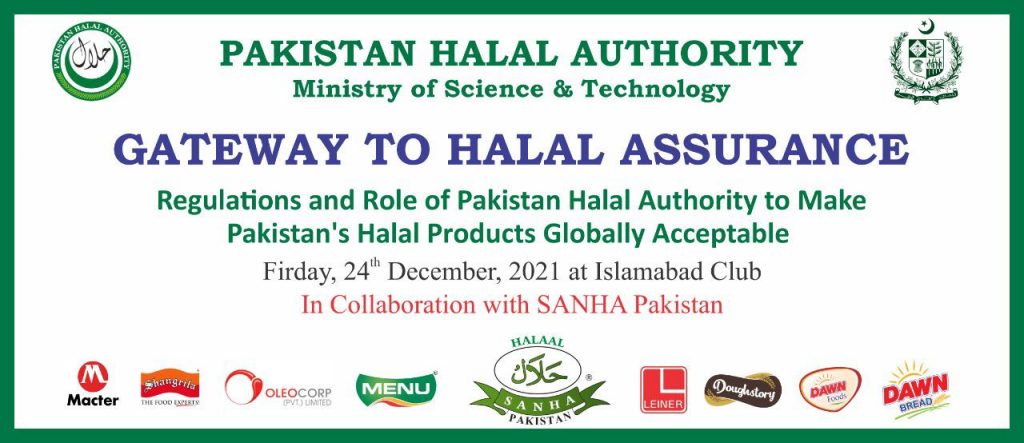SPEAKERS
at an international conference in the provincial metropolis stressed
the importance of Halal food certification for boosting consumers’
confidence in foods and improving their sale.
They conference
titled “Halal Foods and Ingredient Concerns” was held at the Pakistan
Council of Scientific and Industrial Research here on Monday. It was
jointly organised by the Islamic Food and Nutrition Council of America
(IFANCA) and the Pakistan Society of Food Scientists and Technologists
while it was attended by a large number of food industry
representatives.
Punjab Finance Minister Tanveer Ashraf Kaira,
presiding over the conference, said the country had a huge market for
Halal food, which could be exported, adding that the country’s Halal
good export was very low at the moment. He emphasised the importance of
Halal certification for food, urging all the stakeholders, including
industry, academia, and research organisations to address the issue.
Dr
Munir Chaudhry of IFANCA briefly described the history of food
certification, adding that his council would help Pakistan regarding
certification of Halal foods. He said that every ingredient was
important and must be certified as Halal, adding that Halal dietary
laws were more than 1400 years old but not until very recently was
there a concept of Halal certification. Dr Chaudhry said there was
potential for the Halal market to grow as the world wide Muslim
community consisted of 1.4 billion people and the global Halal trade
was now estimated to be $580 billions. He shed light on the pioneering
role played by IFANCA in the development of Halal certification system
internationally which provided Halal certification in more than 55
countries.
Dr Mian N Riaz from the Texas A&M University’s
Food Protein Research and Development Centre, said Halal products had
become very important to consumers. “For Muslim consumers, trust in
Halal food relates to the certainty about the process attributes,” he
said, adding that any uncertainty about this would lead to shattering
of trust that consumers placed in companies.
This can have major
financial consequences to the companies, he said, adding that consumer
trust could be strengthened by obtaining Halal certification. However,
this too should be a Halal label controlled by an official institution
in order to prevent fraud, he emphasized.
“The genuine Halal
logo is an authoritative, independent and reliable testimony to support
Halal food claims,” he said and added that having a Halal label would
enhance the marketability of products in Muslim countries. He said the
E-numbers were recently part of a controversy in Pakistan when some
elements spread rumours about the Halal status of a multinational
potato chips manufacturer.
He said E-numbers were systematic
numerical designations for identifying food additives, adding that
E-numbers by themselves were not indicators of the Halal status of many
ingredients. A Halal Audit Overview, as developed by IFANCA, was a more
foolproof system of determining it, he said.
Hameed Lateef
appraised the work of the Pakistan Standards Council towards developing
Halal standards, including recommendations made to the OIC about
stunning and mechanical slaughter of poultry in favour of slaughter by
hand individually by Muslim butchers.
The conference, in the
end, made several recommendations which included that the Pakistan
Standards and Quality Control Authority (PSQCA) must approve a national
Halal standard based on the standards currently available in other
Muslim countries. The PSQCA and others must develop guidelines to
monitor products imported by multinational and national companies and
guidelines may be implemented at the import points, it said, adding
that the public sector must create a list of approved Halal certifiers
from other countries based on specific criteria and the Pakistan
Society of Food Scientists and Technologists (PSFST) and others must
position it as a Halal certifier through proper training about Halal
certification guidelines.



